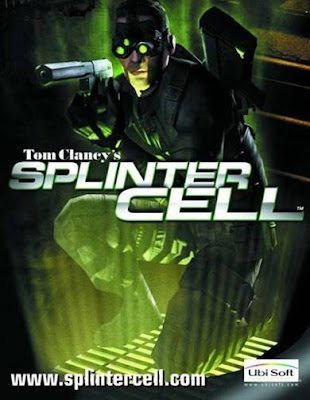Videogames as metaphors---Military-Entertainment Complex
In a very brief look of the war games production of the last fifteen years, we can see that up to the end of the 90’s, videogames had a bipolar conception of the war and the geopolitical relationships, like the

In an article written by Toni Fortin at the Monde diplomatique of July 2007 there are some very interesting points of view regarding this swift of tactic of the video game corporations. As an example he uses the case of the video game Command and Conquer (Electronic Arts 2003) where US and China become friends and fight together against a group of terrorists that is part or close to Al Qaida and of course behaves in a barbarian way. Or in another example, in the Act of War, direct action (Atari, 2005) the camp of the evil is made by Islamic terrorists that after an assault hold some oil resources and they oppose to the US plans. Here at this game there is a surprise at the scenario. United States are supported by a paramilitary police like group, the Task Force Talon composed by different kind of ‘’pieces’’ that is just made to act in occult operations. At the game scenario they are portrayed as ‘’old obstacles’’ regarding the establishment of international right and peace, but from now on they are part of the camp of good.

Furthermore, at the section of the more ‘’progressive’’ video games the third camp becomes the inside enemy. Usually these are mutated creatures or machines products of degenerate military-complexes. The target of such scenarios is to create Orwellian like situations that are on one hand in accordance with the actual technological evolutions, but on the other they can attack the player at any time creating this way a constant threat of chaos.

These games are characterised by a dynamic game play where the events of the action, are not totally predicted by the developers in order to introduce that way a kind of omnipresent risk to the player. The game world becomes this way a system rather than an interactive narrative. From now on the player does not belong simply to the camp of the good guys, but he is an element between obscure forces animated by different interests. This conception of the game play renders the idea of a world that after the fall of

Practically speaking the imperative of ‘’saving the democracy’’ can justify its negation, the violation of the rights and the human dignity. The heroes may assassinate in cold blood and in impunity the alien agents. Exactly the same way, as the advertisement of Splinter Cell (Ubisoft, 2003) says: It’s only me that dispose the fifth liberty, the right to espionage, to steal, to destroy and assassinate so to guaranty that the American liberties will be protected. If i get caught my government will pretend that ignore my existence.





4 Comments:
2016-07-12keyun
replica rolex watches
nike sb janoski
adidas uk
michael kors outlet
nike running shoes for men
replica rolex watches
asics shoes for women
gucci outlet
adidas factory outlet
coach outlet store online
ed hardy outlet
louboutin shoes
toms outlet
louis vuitton outlet
jordan shoes
jordan concords
celine handbags
jordan 6s
ralph lauren home
oakley vault
nike free 5.0
adidas superstar
polo ralph lauren
the north face jackets
true religion jeans
true religion jeans
coach factory outlet online
cheap rolex watches
michael kors outlet
polo ralph lauren outlet
louis vuitton outlet stores
louis vuitton handbags
cheap louis vuitton handbags
pandora charms
coach outlet clearance
tory burch sandals
michael kors outlet clearance
coach factory outlet
christian louboutin sale
christian louboutin shoes
coach outlet
moncler jackets
air jordan 4
jordan shoes
ugg boots clearance
dsquared
canada goose jackets
air jordan uk
coach factory outlet
michael kors outlet online
kyrie 5 shoes
timberland
nike kd 11
golden gooses
balenciaga
longchamp bags
michael kors handbags
christian louboutin shoes
louboutin shoes
I found Hubwit as a transparent s ite, a social hub which is a conglomerate of Buyers and Sellers who are ready to offer online digital consultancy at decent cost. Austin strippers
Post a Comment
Subscribe to Post Comments [Atom]
<< Home